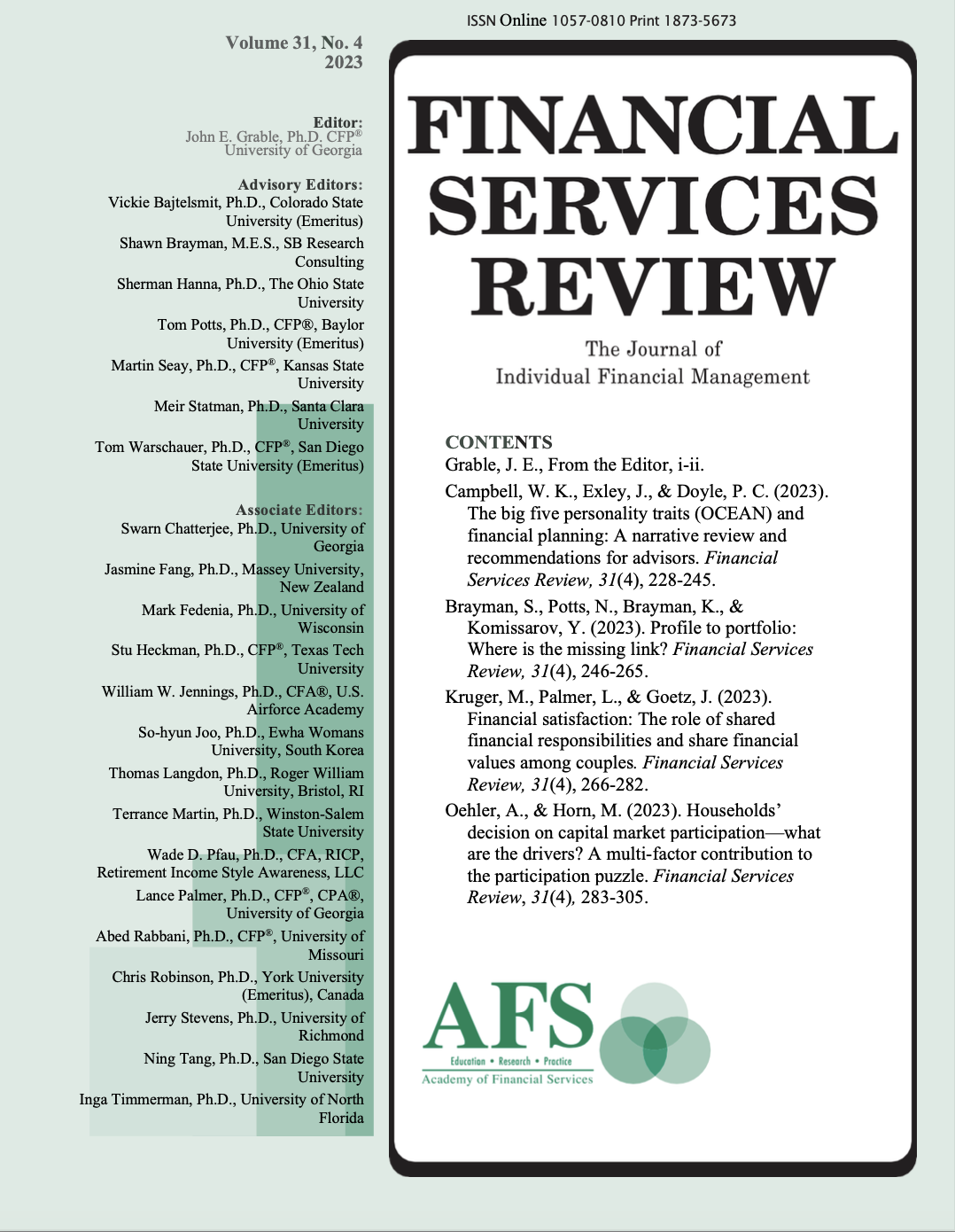The Big Five Personality Traits (OCEAN) and Financial Planning
A Narrative Review and Recommendations for Advisors
DOI:
https://doi.org/10.61190/fsr.v31i4.3178Keywords:
Personality, Big Five, OCEANAbstract
Financial planning has moved beyond a purely economic model and now incorporates aspects of behavioral economics and counseling psychology to better serve clients. In this review, we suggest that personality psychology, particularly the Big Five or OCEAN model of general personality might also be useful in financial planning. Financial planners are well aware that different clients with different personalities bring different opportunities and challenges into the planning session, but planners might benefit from a more formal understanding of client personality. To this end, we describe the Big Five traits – Openness to experience, Conscientiousness, Extraversion, Agreeableness and Neuroticism or OCEAN – and the basic personality science surrounding them. We next examine how each of the OCEAN traits is associated with key financial outcomes including: income, net-worth or wealth, financial literacy, financial risk tolerance, and financial happiness. We discuss profiles of the Big Five traits, including Resilient, Under controlled, and Over controlled profiles. Finally, we discuss some potential benefits for of incorporating personality science into financial planning research and practice.
Downloads
Published
How to Cite
Issue
Section
License
Copyright (c) 2023 William Campbell, James Exley, Patrick Doyle

This work is licensed under a Creative Commons Attribution-NonCommercial 4.0 International License.
Author(s) retain copyright and grant the Journal right of first publication with the work simultaneously licensed under a Creative Commons Attribution-NonCommercial 4.0 International License that allows to share the work with an acknowledgment of the work's authorship and initial publication in this Journal.
This license allows the author to remix, tweak, and build upon the original work non-commercially. The new work(s) must be non-commercial and acknowledge the original work.


